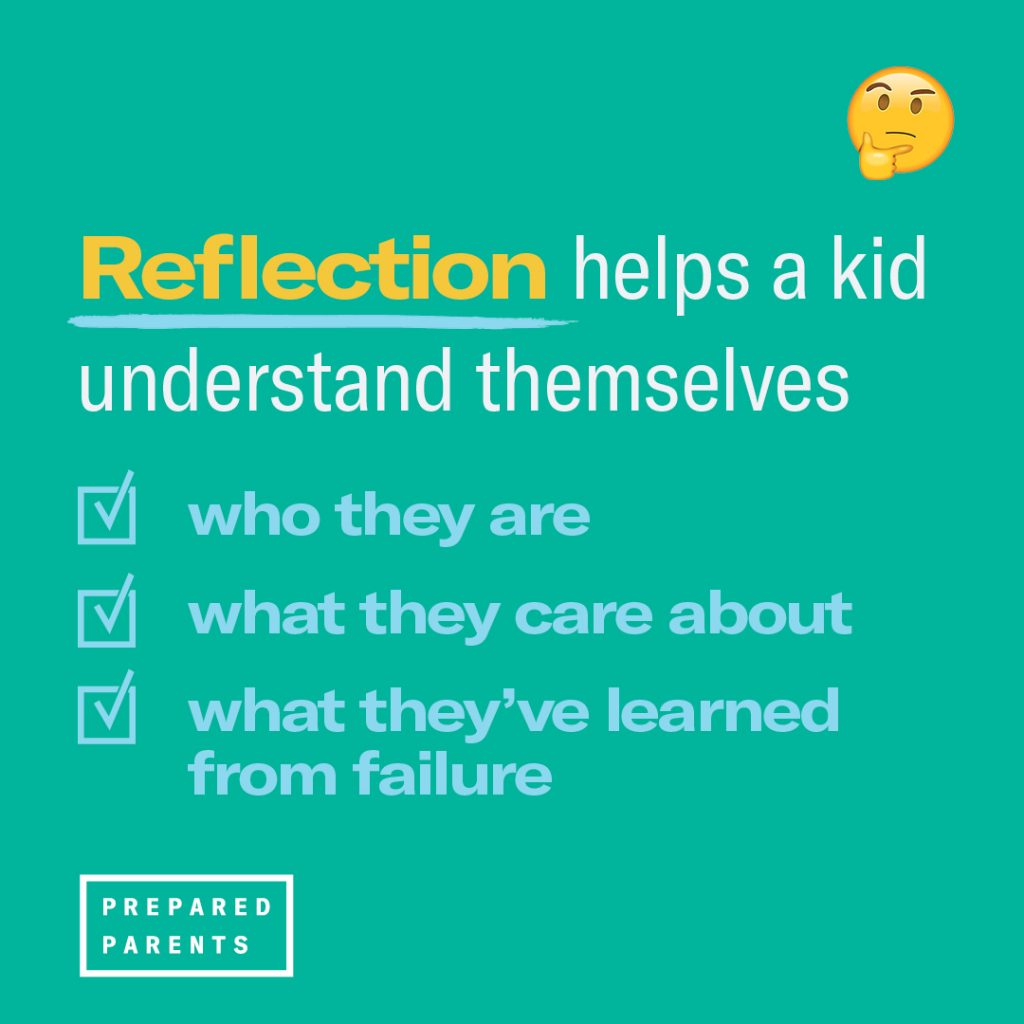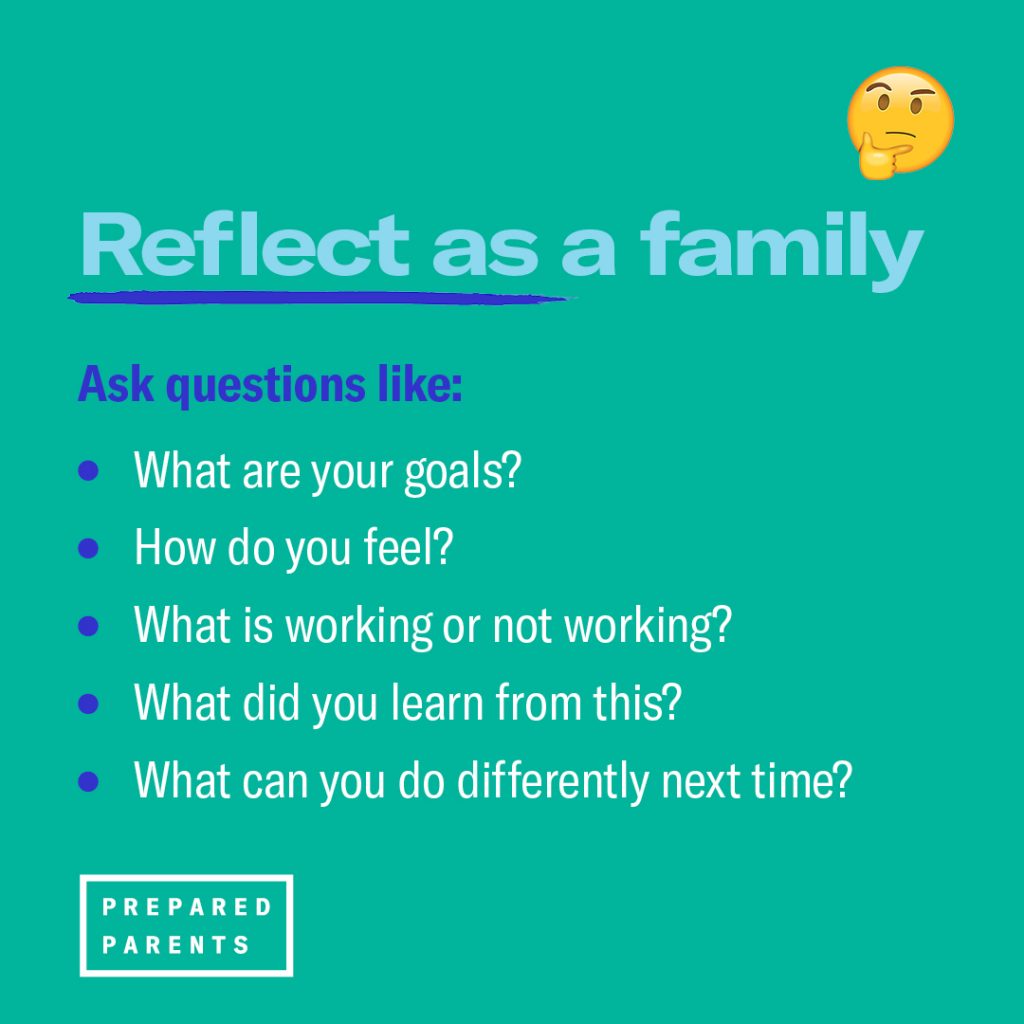In the movie industry it’s called watching the dailies. In sports, athletes and their coaches go to the tape. By taking a moment to pause and look back, actors and athletes not only acknowledge their achievements, but also, more importantly, they analyze the areas they want to improve so they can do things differently the next time. It’s during moments of reflection that learning and growth can take place.

Asking ourselves reflective questions provokes us to think about what we want, who we are, what we care about, how we feel, and what we should do as a result—not because someone told us to do it, but because it’s an authentic choice for us.
Reflecting on what they’re experiencing can help kids in all kinds of situations, like exploring different interests when they’ve activated their curiosity, managing social situations like meeting new people, and resolving conflicts with others.
Learning science tells us that we need to take moments to reflect to build self-awareness and vulnerability, which allows us to accept imperfections, feel empathy for others, and subsequently change our behavior and outlook for the better. Reflection is the most important thing we can do for growth and learning. It actually boosts productivity.
Reflection gives the brain the opportunity to deal with messiness by slowing down, sorting through our thoughts, and taking personal responsibility to create meaning. This meaning becomes learning. Ultimately, taking time to reflect:
- Builds self-awareness,
- Develops resilience,
- Boosts confidence,
- Encourages progress, and
- Enables innovation and strategy-shifting.
Step 1: Reflection begins with open-ended questions
Reflection lets your kid dig deep. Facilitate it by encouraging them to consider the experience, not review the facts learned. Ask open-ended questions. This allows them to think about how they got through their work and whether there may have been a better way to get there.
Here are some sample prompts to get the conversation going:
- What worked to get you into learning mode?
- How did you keep going when it felt too hard?
- How did you shift your strategy when your approach didn’t work?
- How did you stretch yourself?
- What can you use to push through to complete this project?
If your kid isn’t a talker, suggest they write down their responses. This is especially helpful as they read through their notes later to see how they’ve adopted what they’ve learned through the reflection process.
Step 2: Dig deeper with more questions.
These questions allow a kid to look more deeply into who they are.
- What do I want from this experience?
- How do I feel about what’s happening?
- Am I learning something new about myself?
- What can I do differently next time?
Step 3: Listen and synthesize.
As your kid responds to the questions, just listen. This is not the time to make comments or offer opinions. Once they’ve finished speaking, take a moment to synthesize their main points and do a tell-back. This lets them know you not only heard them, but understood what they were telling you. You can offer feedback with these sentence starters:
- I noticed…
- I wonder…
- I feel…
Put yourself in the role of reflector (or mirror) to point out things they may not see themselves. In this way, you’re giving feedback and guidance without giving answers. That will empower your kid to build the skill of self-direction. If they’re having difficulty articulating their responses to your open-ended questions, turn the table and do a reflection of your own. Invite them to ask you questions. Once they’ve seen how you reflect, they’ll have an idea of how to engage in the exercise themselves.
Step 4: Reflect and celebrate accomplishments.
It’s in moments of reflection that growth takes place and confidence builds. Once a learning goal has been reached, set aside some time to celebrate. When a kid reflects on what they’ve accomplished they can say, ”Wow, I did that! And here’s everything I had to do to get to the end point.”
Celebrate the small wins along the way that result in the big success. That’s the Progress Principle. Embedded in the science of how kids learn is the fact that making progress keeps them moving. It’s a form of intrinsic motivation, and kids who are intrinsically motivated engage in a behavior because it’s personally rewarding.


